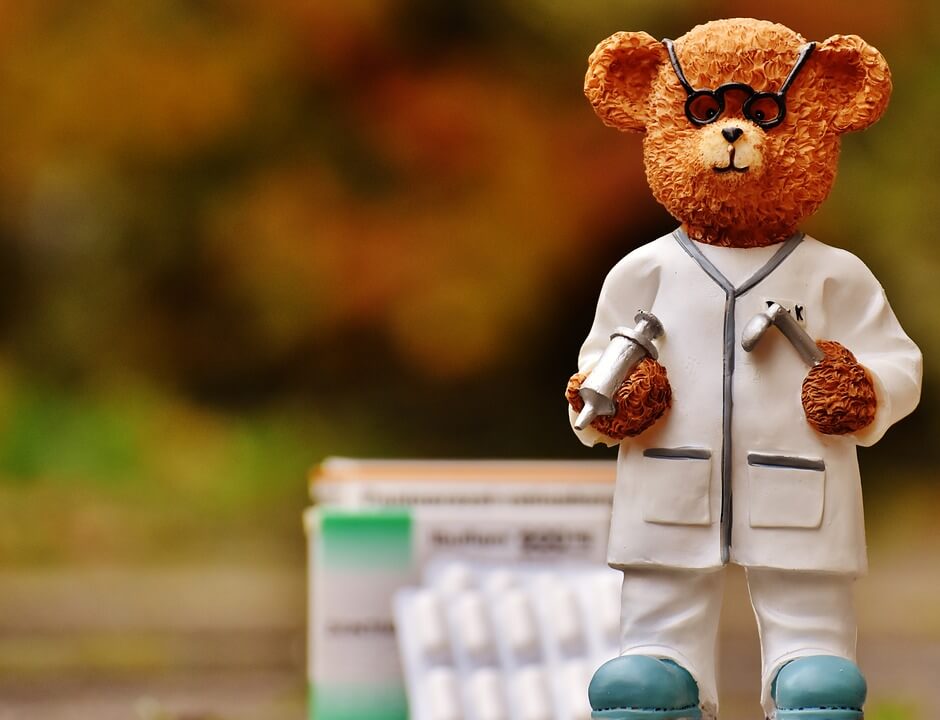What Is Herpangina in Babies?

Herpangina in babies is a benign condition caused by contact with or inhalation of a virus. It can affect anyone, but it most often affects children under 5 years of age who attend schools, daycare centers or camps.
The truth is that it’s a very common type of angina caused by the group A Coxsackie virus. It’s contagious and can spread rapidly.
In spite of everything, you shouldn’t worry too much, since most cases resolve themselves in about a week without complications.
I cannot think of any childhood need as strong as the need of protection from the father.
-Sigmund Freud-
Symptoms
When the virus is contracted, the process begins abruptly in a feverish way with abdominal pain. The symptoms that the child may experience are similar to those of classical angina.
You may notice the following symptoms of herpangina in babies:
- Abdominal, throat, head and neck pain
- Inflamed lymphatic glands
- Difficulty swallowing
- Loss of appetite
- Vomiting
- Drooling

Small ulcers in the back of the mouth and throat begin to appear about 2 days after the initial infection. They tend to be light gray and often have a red border. The ulcers usually heal within a 7-day timeframe.
How to prevent herpangina in babies
Like many other viruses, herpangina is contagious and can easily spread from one person to the next. If your baby has the disease, it’s important that you take precautions to prevent it from spreading.
The disease is most common between the months of June and September.
Keep in mind that the risk of contamination is high in young children, especially in summer. The infection is airborne, but also spreads through contact with body parts and objects.
It’s very complicated to prevent herpangina in babies, since protecting the baby from elements such as pollution is sometimes a virtually impossible task. And, in addition, most people carry the virus without having symptoms.
If you have a case of herpangina in babies at home, we recommend you avoid attending nursery until your baby has fully recovered. To do this, he’ll need to rest at home.
Also, be sure to wash your hands frequently during the day while your child is sick, and clean surfaces that your baby has been in contact with.
What are the causes?
As in any angina, a virus is the cause of 60–75% of cases of herpangina in babies. It’s usually caused by the Coxsackie virus group A. However, it can also be caused by the Coxsackie virus group B, Enterovirus 71 and Echovirus.
It is a highly contagious virus that can easily spread from person to person, especially in schools and child care centers.
They are typically transmitted through contact with fecal matter. The infection can also be transmitted through contact with the droplets produced by a sneeze or through the cough of an infected person.
Also, the virus can live on surfaces and objects, such as countertops and toys, for several days.

How is it treated?
To fight herpangina in babies the correct way, it is necessary to visit the doctor, who will evaluate the patient and determine the best pharmacological treatment to control the symptoms and progressively relieve the child.
If a consistent treatment is maintained and additional measures are taken (a good diet, adequate rest, etc.) the symptoms should disappear in 7 days.
Regardless, the specific treatment plan will depend on a variety of factors, including the individual’s age, symptoms and tolerance to certain medications.
It is a type of viral infection, and therefore antibiotics aren’t an effective way to treat it. Instead, the doctor may recommend that you follow these steps:
- Ibuprofen or acetaminophen. These medications will relieve any discomfort and lower the baby’s fever.
- Topical anesthetics. Certain anesthetics, such as lidocaine, can relieve a sore throat and any other ailment in the mouth associated with herpangina.
- Increase fluid intake. It is important for the child to ingest plenty of fluids during recovery, especially water and cold milk. Also, you should prevent the baby from consuming citrus and hot beverages, as they can make the symptoms worse.
This text is provided for informational purposes only and does not replace consultation with a professional. If in doubt, consult your specialist.
